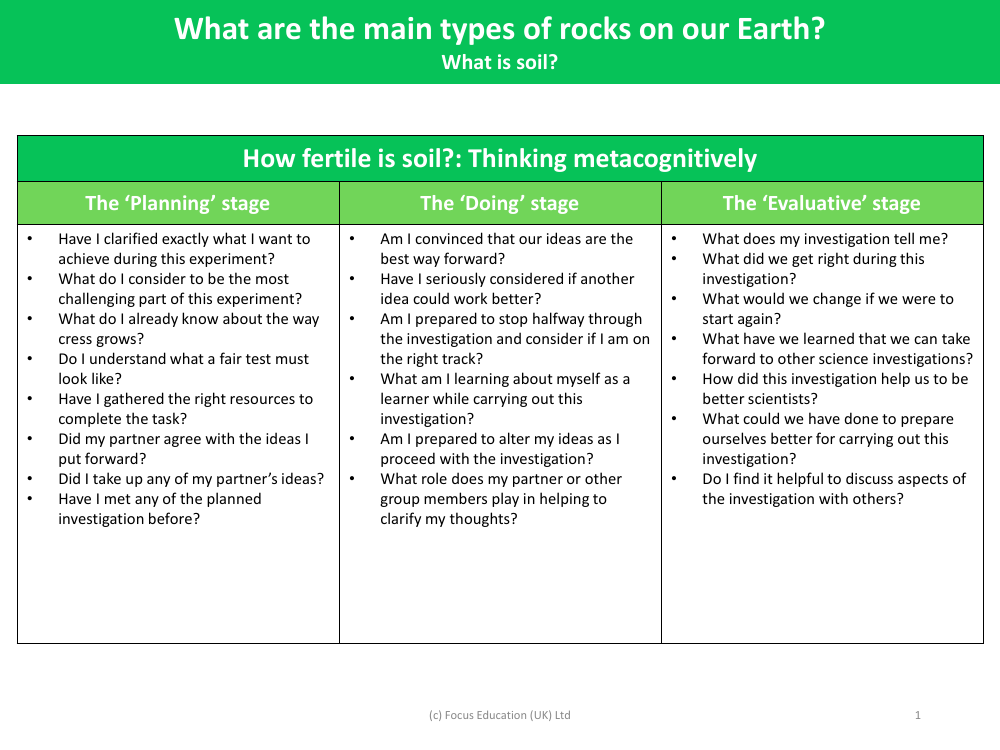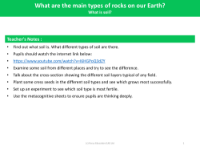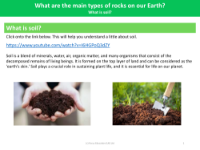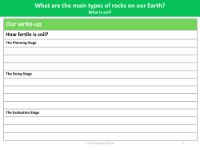How fertile is soil? - Thinking metacognitively

Science Resource Description
When embarking on a scientific experiment to determine soil fertility, it is crucial to engage in metacognitive thinking, which involves a three-stage process: planning, doing, and evaluating. In the planning stage, one must define clear objectives for the experiment and identify potential challenges. Prior knowledge about cress growth and the principles of a fair test are considered, along with ensuring the right resources are available. Collaboration is also key, as ideas are shared and refined with partners or group members, and the willingness to adapt plans is crucial for the success of the investigation.
The 'Doing' stage is where the practical aspect of the experiment takes place, with continuous reflection on the learning process. It is important to remain open to adjusting the approach based on observations and findings during the experiment. The role of collaboration is again emphasized, as partners and group members help clarify and improve the investigative process. The 'Evaluative' stage is a post-experiment reflection, assessing what was learned, what could be improved, and how the findings can be applied to future scientific inquiries. This stage also involves considering how the investigation has contributed to the development of better scientific practices and whether discussing the experiment with others was beneficial. This metacognitive approach not only aids in understanding soil fertility but also enhances overall scientific acumen.





